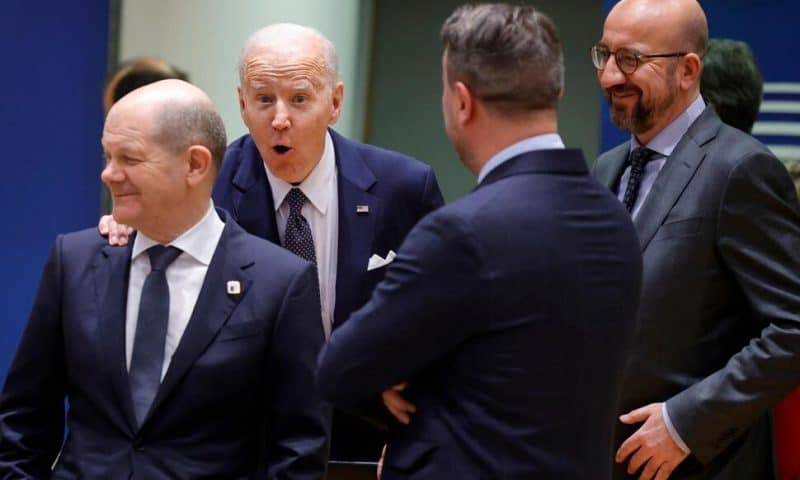President Vladimir Putin’s threat to have “unfriendly” countries pay for Russian natural gas exports only in rubles from now on has got the not-so-friendly treatment from European Union nations.
BRUSSELS — President Vladimir Putin’s threat to have “unfriendly” countries pay for Russian natural gas exports only in rubles from now on got the not-so-friendly treatment from European Union nations Thursday.
“I don’t think anybody in Europe really know how rubles look like,” said Slovene Prime Minister Janez Jansa. “Nobody will pay in rubles.”
If others put it less bluntly, it came down to the same — from German Chancellor Olaf Scholz to Italian Prime Minister Mario Draghi, who as former chief of the European Central Bank, knows something about currencies.
Early this week, Putin launched the idea that because of Western sanctions targeting the Kremlin and freezing Russian assets, they were “effectively drawing a line over reliability of their currencies, undermining the trust for those currencies.”
So instead of euros and dollars, Putin wants Russian rubles for Russian gas.
Economists said the move appeared designed to try to support the ruble, which has collapsed against other currencies since Russia invaded Ukraine on Feb. 24 and Western countries responded with far-reaching sanctions against Moscow.
Making such demands though, would fundamentally change contracts and render them null and void, several European leaders said during the first day of their EU summit.
“What we have learned so far boils down to the fact that there are fixed contracts everywhere, where the currency in which payment is made is also part of the contract,” said Scholz. “Those are the starting points that we have to work from.”
Draghi simply said that if Putin pushed through the plan, “we consider it a violation of existing contracts.”
And considering the skyrocketing prices for gas, Belgian Prime Minister Alexander De Croo even saw possibilities in the proposal, though not the kind Moscow intended.
“In any case, if one element of a contract is changed, than we can talk about a whole range of issues, including the price,” De Croo said.
The Russian threat is potent since the EU imports 90% of the natural gas used to generate electricity, heat homes and supply industry, with Russia supplying almost 40% of the bloc’s gas.
With the ruble in trouble because of the stringent economic sanctions, Putin would use any financial lift he can find. He instructed the country’s central bank to work out a procedure for natural gas buyers to acquire rubles in Russia.
But some analysts expressed doubt that it would work.

